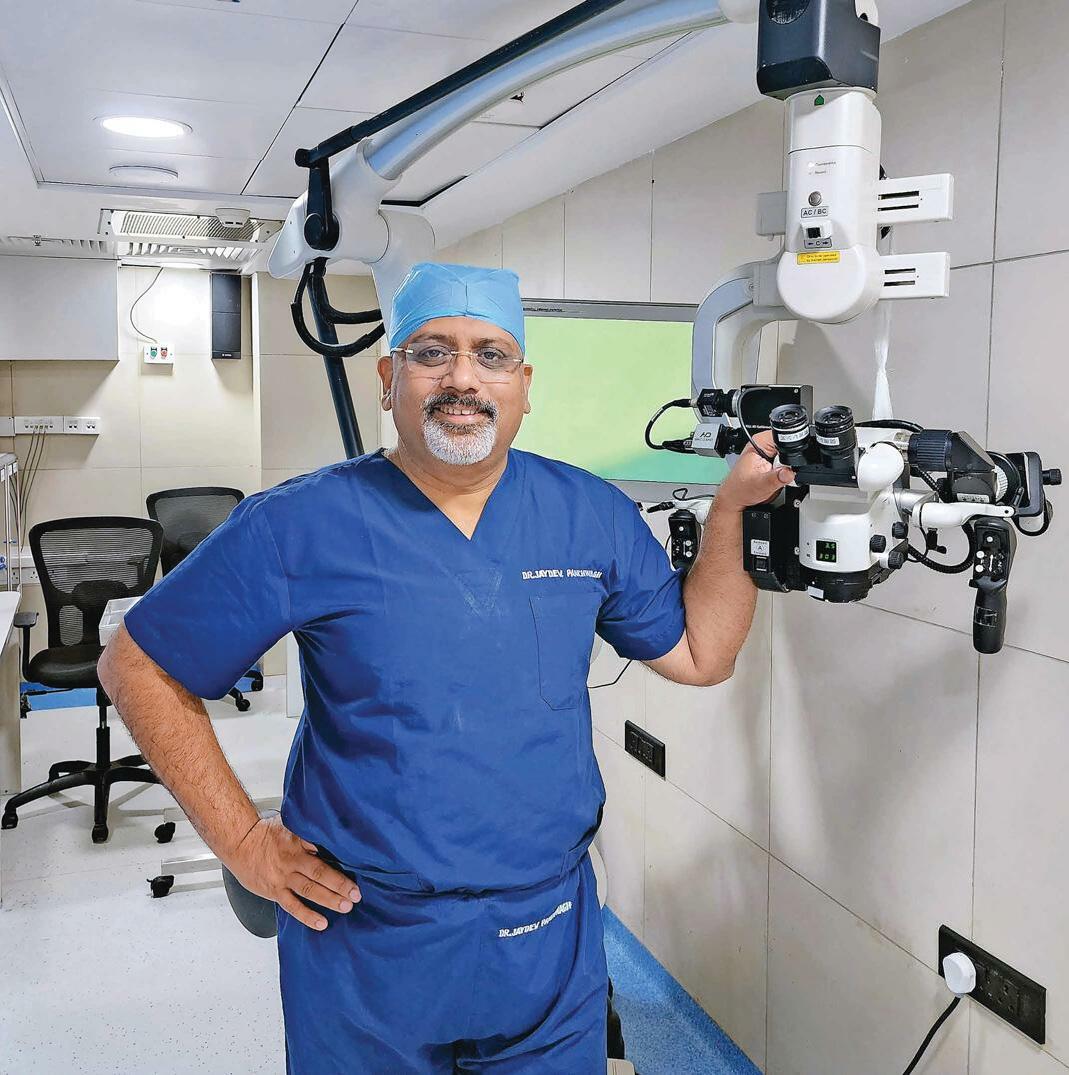
In a space not bigger than a modest 2BHK flat in Pune, neurosurgeon Dr Jaydev Panchawagh runs a clinic dedicated solely to treat patients of the "deadliest pain known to mankind". Confounded and desperate patients approach him complaining of recurrent episodes of "devastating pain", mostly around the jaw and forehead. It feels as if a drilling machine is piercing through their head, they tell him.
"It is extremely bad," says Anik Nanda, a patient of Panchawagh. "It makes you want to die, renders you completely hopeless and drained out. It is like a mad dog that keeps hounding you whenever it feels like.
Even in its absence, you anticipate its next strike." He was 24 when the pain first struck him. He lived with the pain for seven years before getting treatment at Panchawagh's clinic in 2019. "The first time it felt like an ache, but it kept getting intense and frequent, spreading all over the left side of my face in no time," he recalls.
"I became a zombie, living half a life." He approached numerous doctors, including psychiatrists, dentists and ENT (ear, nose and throat) specialists and took many medicines, all of which failed to provide relief. The solution came through microvascular decompression (MVD) surgery, which involves opening the skull and inserting a tiny sponge between the compressing vessel and the trigeminal nerve so as to create a buffer between the two, thereby fixing the root cause of the pain and also preserving the nerve. Panchawagh has so far conducted close to 800 such surgeries.
The pain in question is medically called trigeminal neuralgia. Nanda was not exaggerating when he said that the pain makes you want to die-trigeminal neuralgia is also known as 'suicide disease' because many patients develop suicidal tendencies. It is estimated that one in 15,000 to 20,000 people worldwide have trigeminal neuralgia and it is twice as common in women than in men. It usually affects people over the age of 50.
Diese Geschichte stammt aus der July 28, 2024-Ausgabe von THE WEEK India.
Starten Sie Ihre 7-tägige kostenlose Testversion von Magzter GOLD, um auf Tausende kuratierte Premium-Storys sowie über 8.000 Zeitschriften und Zeitungen zuzugreifen.
Bereits Abonnent ? Anmelden
Diese Geschichte stammt aus der July 28, 2024-Ausgabe von THE WEEK India.
Starten Sie Ihre 7-tägige kostenlose Testversion von Magzter GOLD, um auf Tausende kuratierte Premium-Storys sowie über 8.000 Zeitschriften und Zeitungen zuzugreifen.
Bereits Abonnent? Anmelden

Forging the future
As the curtain falls on 2024, I take pride in the extraordinary milestones achieved under the leadership of Prime Minister Narendra Modi. This year stands as a testament to the Modi government's resolve to forge a resilient and forward-looking Bharat. From groundbreaking advancements in infrastructure to visionary global initiatives, these efforts resonate deeply with the vision of Viksit Bharat.

Our strange democracy
Abraham Lincoln is lauded as among the very best presidents the US ever had: the statesman par excellence successfully steered the nation through the devastating and perilous years of the American civil war. Not only did Lincoln manage to keep his country united, he also ensured the passage of the 13th amendment to the US constitution, which abolished slavery.

Five years of post-pandemic fashion
It has been five years since we discovered what Covid-19 was, and five years since it disrupted the world forever. The World Health Organization activated their emergency systems on January 1, 2020, and informed the world by January 4, 2020. By the end of that week, they had set guidelines for various countries to follow. Comparable to the Spanish flu of 1918, more than 7 million people have died of Covid according to official data. Unofficially, no one has an idea. WHO has just this week asked China to provide critical data to understand the virus's origins as a “moral and scientific imperative”.

Community spirit
Rhythm of Dammam opens a window to the world of African-origin Siddis of Uttara Kannada

'Breaking' down a scandal
Society Girl is not just a case study of a high-profile death in Pakistan but also a stark commentary on media trials

Progress card
Jasmine Shah's book tells you what the AAP has achieved in Delhi in the last 10 years

SENSE IN NONSENSE
In his latest book of poetry, Ruskin Bond is at his funniest

Get ready for Trump bump
The ‘butterfly effect’ is a beautiful, mysterious metaphor of the planet’s interconnectedness.

QUIET FLOWS THE FAITH
The melding of an ancient amorphous faith and the latest science; of an antique tradition and new practices; ways of life older than memory and new expressions is happening at Prayagraj in Uttar Pradesh.

Trash to treasure
How a weed-choked Dal Lake spurred Maninder Singh's journey to become a waste management visionary